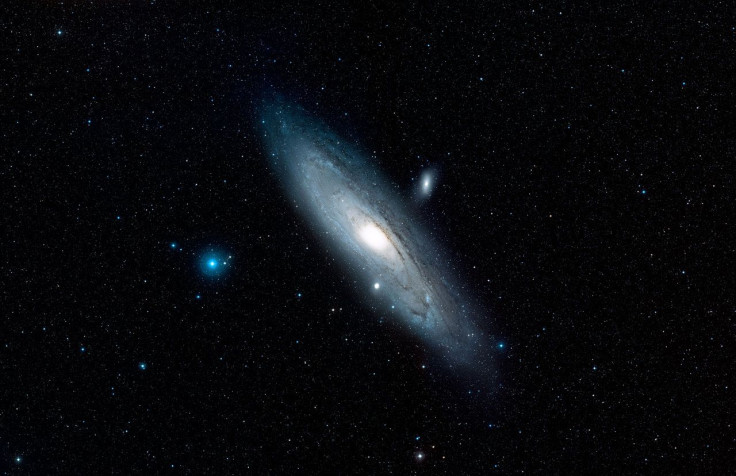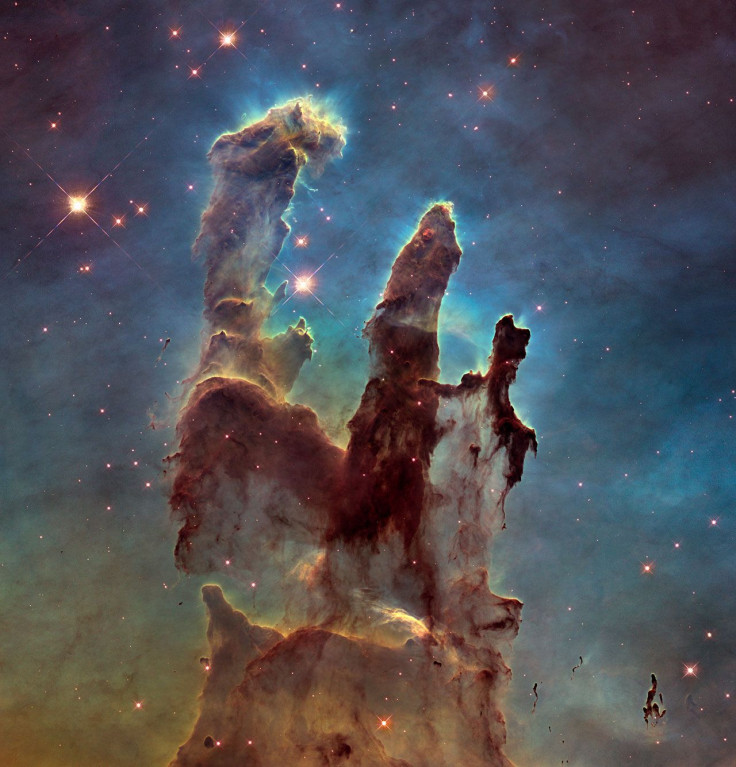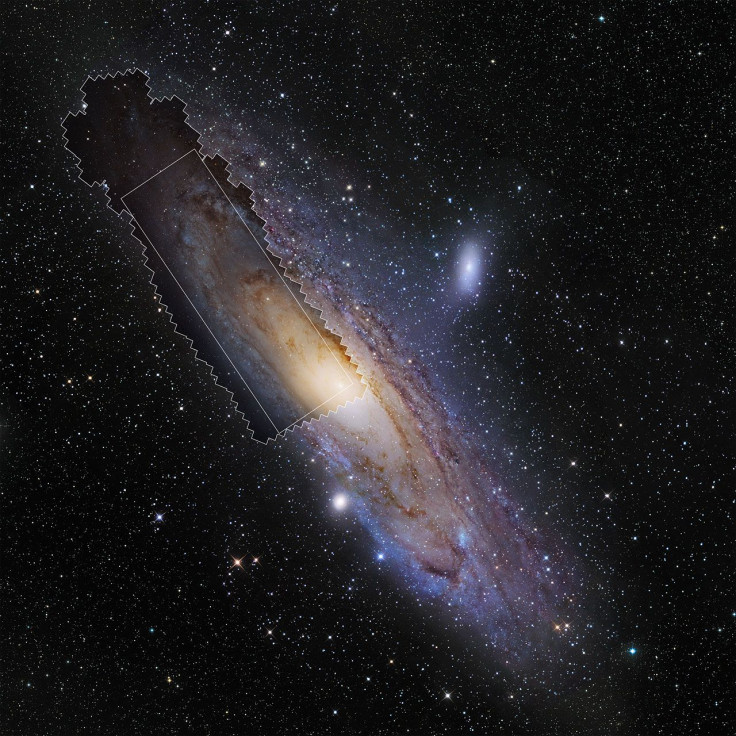Sharpest Ever Hubble Images Of Andromeda, Pillars Of Creation Are Too Big For A Computer [PHOTOS]

NASA has revealed some of the sharpest images of the universe ever taken, including such iconic destinations as the Andromeda Galaxy and the Eagle Nebula’s "Pillars of Creation." The newly released photos were captured by the Hubble Space Telescope and depict the cosmos in never-before-seen clarity -- so much clarity, in fact, that it would take 600 high-definition television screens to view some of the images in their entirety, according to NASA.
“We laid the pictures out on the table, and we were just gushing because of all the incredible detail that we were seeing for the very first time,” astronomer Paul Scowen of Arizona State University in Phoenix, said in a statement.
The Pillars of Creation, a nebulous cloud of gas and dust located some 7,000 light-years from Earth, were first photographed by Hubble in 1995. To celebrate the 20th anniversary of those images, NASA reshot the nebula in greater detail. The images depict changes in the nebula over the past two decades, including erosion of some parts of the pillars by radiation and strong winds from nearby stars.

The Andromeda Galaxy, a spiral galaxy in the Andromeda constellation that’s about 2.5 million light-years away, is one of only 10 galaxies that can be seen from Earth by the naked eye. It contains a trillion stars and is actually on a collision course with the Milky Way, although the cosmic pileup won’t take place for another 4.5 billion years.
The latest photos of Andromeda are the largest Hubble images ever assembled. They represent the first time astronomers have been able to spot individual stars inside a distant spiral galaxy over such a vast region in space.


NASA has taken other recent sightseeing tours through the universe, including a visit last March to the famed Monkey Head Nebula located in the constellation Orion. The latest Monkey Head images were taken using different filters that highlighted previously unseen colors, breathing new life into one of the universe’s most recognizable dust clouds.
© Copyright IBTimes 2025. All rights reserved.






















